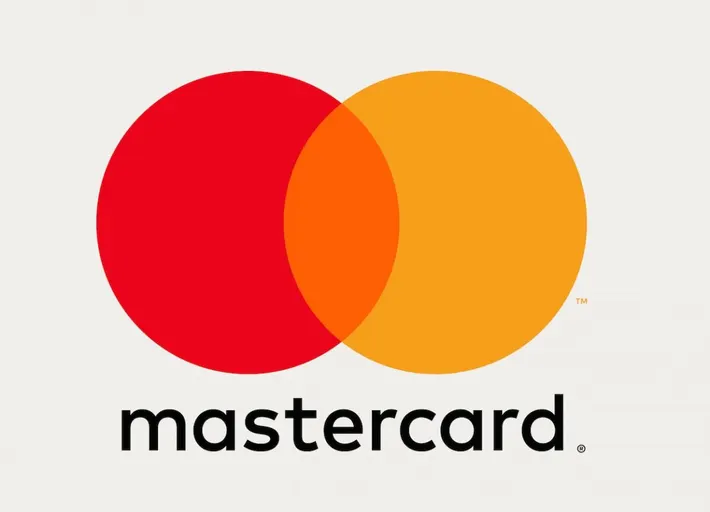
How to save money on entertainment
When people are giving you advice on how to save money, often the very first thing they’ll tell you is to cut out your entertainment expenses. And if we live a very utilitarian life, entertainment expenses do seem like a waste of money.
But, we aren’t machines. We’re human beings. Entertainment is often the category of spending that gives our life meaning. We spend time with friends and family. We pursue hobbies and interests. And we find enjoyment out of the world around us. To cut all of these things out would ask us to live a very drab life.
It’s unrealistic to cut all of our entertainment spending. We might be able to do it for a short period of time, but we wouldn’t be able to sustain it for long. And the true power of saving money is to change the way we think and how we approach the resources around us. If all we’re trying to do is save money for the short term, we can be successful, but we won’t make the changes necessary for significant long-term financial improvement.
So the question is, how do we make changes to our entertainment spending in a sustainable positive way? Not all of the ideas offered below will be meaningful to everybody. However, some of them may be perfect ways in which to rethink your approach to how you spend money on entertainment.
Cancel subscriptions you don’t use
You can save a lot of money by stopping the subscriptions that you don’t use, or use very little.
It makes sense that companies want to sell subscriptions. It’s a way of ensuring revenue over time regardless of how much we use their products. It’s predictable. That’s the exact reason why they are problematic for consumers. We sign up for a subscription and before long we have forgotten about it. Or, the novelty of the product or service has worn off. It’s very possible that we have subscriptions that we use so little but they just automatically charge to our credit cards. Removing the subscriptions that we don’t use can save hundreds of dollars a year.
Cycle the subscriptions you do use
Even the subscriptions we do use, aren’t always necessary all the time. Streaming services are a perfect example. There may be shows on every one of the streaming services that interest us, but we can’t possibly get our money’s worth out of all of the streaming services every single month. After all, we’re either watching Netflix or Apple TV or Amazon Prime or Paramount Plus or Hulu or YouTube TV or HBO Plus or any of the other streaming services, but we can’t watch more than one at a time.
With a little bit of planning, we can schedule the streaming services so that we can binge our favorite shows and not pay for the channel when we’re not using it. You could pay for Netflix in January, April, July, and October. You could pay for Apple TV in February, May, August, and November. And while you’re at it, you could even cancel all of them during June and July under the assumption that you should be out enjoying the weather or on vacation. You could maintain access to almost all streaming services at some point in the year and still save more than half of what you currently spend.
Get back to nature
Spending time out in nature has proven to be good for your wellbeing: can help you feel better emotionally, supports your physical wellbeing by reducing blood pressure, stress hormones, muscle tension, and heart rate. Even better, accessing nature can be pretty economical. A walk in the park is usually free. National wilderness areas rarely cost money and state parks often have a nominal per car fee for entrance.
Change your entertainment expectations
Some of us can’t even imagine what entertainment without spending even looks like anymore. So much of our life is dictated by advertising that we begin to believe that whatever we might want to do on a Friday or Saturday night must by necessity be facilitated by a corporation charging us a sizable amount of money. We should be able to rethink what sorts of activities can bring us satisfaction and joy. It might require us to be a little more creative, but before long we might find that life’s best pleasures aren’t sold by companies.
Be creative
Sometimes a little constraint can lead to a lot of creativity. Challenging yourself to spend a Saturday doing something that costs no money (or a very little amount of money) may be just the thing you need to get out of the consumerist attitude toward entertainment. Once you’ve got an idea, think of ways you can make it even more fun, relaxing, or interesting. Doing things outside your normal expectation can be even more rejuvenating than a pre-packed, costly activity.
Invite guests after dinner
One of life’s particular joys is spending time with friends and family. Part of that joy is sharing food together. Of course, not every gathering that you have with family and friends must include an elaborate meal. Sometimes it’s good enough to invite people over after dinner. You can increase the expectation that people can spend time together without having to eat. If every time you want to get together with family and friends the expectation is to put out a full spread of food, you are pitting your pocketbook against your relationships. That is a battle your pocketbook should never win, but that means that your relationships may end up costing you more money than they need to.
Use the library
I know what you’re thinking. What is this the 19th century? What could a library possibly provide me for my entertainment? The most obvious answer to that is that most books that we buy we don’t need to have on our shelf. Many of the beach reads that we come across are perfectly okay to borrow from the library and return.
But libraries are so much more than that today. Most libraries have a comprehensive catalog of DVDs. Some libraries even have services to support hobbies, like 3D printers or sewing machines. But even if all you’re interested in is books, many libraries also provide access to audio books.
Making better use of your library can save a significant amount of money on your entertainment expenses.
Plan ahead
A little planning can save a lot of money. When you are planning to attend an event, take a little extra time to do some research to see if you can take advantage of discounts: co-sponsorship deals, early bird specials, senior discounts, student discounts, or group discounts. You can also see if there are discounts for non-peak hours or happy hours.
Set a budget
We all need to relax from the pressures of our lives. Relaxing with family and friends, or just getting out and doing something you enjoy can be just what you need to unwind. Relaxing can lower your guard and you could end up spending more than you wanted to.
When you go out, make sure to set a firm limit on what you can spend and stick to it. Making this decision before you are standing in front of the ATM is important so that things don’t get out of hand. It’s not just about controlling yourself, though. Knowing where you stand and what you are willing to spend can actually give you some peace of mind. You don’t have to wonder whether your monthly budget can handle the expenses in the throes of the night.
You will be able to save money over time if you set a firm budget on the maximum you can spend when you are out on the town.
Monitor free community events
One of the ways that local governments provide services to their citizens is by organizing community events. Whether it’s concerts in a park, farmers markets, or street fairs, events are happening in cities and towns all around you, especially in the Spring and Summer months. These events are usually free and are not limited to the citizens of their cities or towns. Make use of the extensive events that are planned in your area as an alternative to other costly activities.
Start a babysitting “exchange”
If you’re a parent of smaller children you know that one of the most expensive parts of going out in the evening is paying for a babysitter. And the idea of looking for a discount babysitter seems to be particularly ridiculous…reckless…dangerous? One of the solutions would be to cooperate with other people with children and create a babysitting exchange. You can take turns watching each other’s children so that you have regular opportunities to go out without incurring the meaningful cost of a babysitter.
Try that fancy restaurant at lunch
Most sit-down restaurants these days have lunch menus that are meaningfully cheaper than their dinner menus. When you think of going out to eat, especially at a special place, you can save a significant amount of money by deciding to go for lunch instead of for dinner. Often the types of food that you can get at lunch might even be smaller portions, which might even be good for your waistline.
Don’t buy drinks at the restaurant
Fountain drinks and alcoholic beverages can increase a restaurant bill by between 20 to 30%. Certainly sometimes an alcoholic beverage at dinner is part of the experience, but it doesn’t always have to be that way. You can save a considerable amount of money by just cutting out some of the drinks that you order when you go out to eat.
Avoid eating everywhere you go
We have been conditioned to expect to be able to eat wherever we go. The idea that you might show up at an event that does not have a concession stand almost seems un-American at this point. But why should that be? Why is it that part of the experience at a sporting event is to purchase something to eat? There’s no reason why enjoying your local sports team can only be done with a hotdog in one hand and a beer in another.
Reestablishing the expectation that you don’t need to eat wherever you go can save a significant amount of money on entertainment.
If none of these options work well for you then take a look at some of our other money savings articles. Here are some ways to save on utilities and save on transportation and even ideas to save when shopping.























